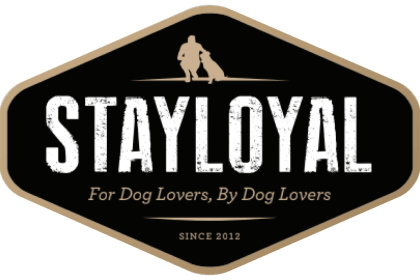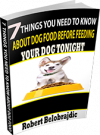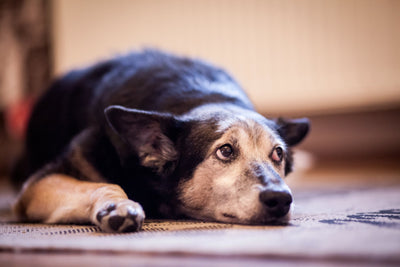Vitamin E and Your Dog: What you Need to Know

Vitamin E is an important supplement for your dog – and it’s one of those that you MUST be careful with – as both too little and too much are bad for your dog’s health. As a dog owner, you should know how vitamin E works, why it is needed and what the signs of vitamin E deficiency and overdose are.
Why Vitamin E is Important for Dogs
Vitamin E is vital to a dog’s health, just like it is for ours! It is a powerful antioxidant – meaning it helps remove or prevent free radicals from causing oxidative stress as the body processes food. Oxidative stress happens when there is an imbalance of free radicals and antioxidants in the body. It leads to cell and tissue damage and is a major player in the signs of aging. Vitamin E deficiency can kill a dog.
Much more than an antioxidant, researchers are still learning all that Vitamin E can do. We do know it also helps form cell membranes.
Vitamin E Deficiency
When a dog is Vitamin E Deficient, they can have serious health issues. Symptoms include:
• Poor vision
• Neurological issues including paralysis, loss of limb use
• Reproductive issues
• Compromised immune system
• Weight loss
• Premature aging
• Pain
• Lack of muscle
Dogs that are severally deficient can develop brown bowel syndrome, where the large intestine ruptures.
While Vitamin E deficiency is most likely caused by poor quality dog food or homemade food that has not been formulated correctly, dogs can also become deficient if other supplements they are being fed inhibit the absorption of it.
A big culprit of this is fish oil. One pet owner of a young 3-year-old Mastiff almost killed her dog by feeding an abundance of fish oil tablets without balancing it out with more vitamin E. Fish oil, flaxseed, other omega fatty acid supplements, and fish proteins can all cause a dog to be deficient in vitamin E if the right amounts are not being given.
Vitamin E Overdose
Like all good things, too much can also be bad. Vitamin E is a fat-soluble vitamin, meaning it’s not lost when food is cooked – this includes dry dog food.
Fat soluble also means that our bodies do not flush out any extra that we consume, instead it is stored in the liver, which means it can accumulate and overdose is possible.
Excess Vitamin E can affect blood clotting, prohibiting normal clumping. However, the level of toxicity has not been researched in dogs and cats in any full manner.
Balancing a Diet
What may be more important is the crazy trail of supplementations you may find yourself in if you are trying to make your own dog food, or supplement a lower quality dry food.
If you are feeding your dog fish oil tablets, you then decide you need to feed more vitamin E to balance it out (but do you know exactly how much more?) AND, then more vitamin E means you need more of vitamins A, K and D to keep the body functioning properly. But be careful! Because K, D, and A are also fat soluble and can get stored up in the body as well.
As you can see, adding supplements can get very tricky! And this is why a well-balanced, high-quality dog food is better than trying to figure out the amounts on your own. A high-quality food will be formulated and balanced to ensure all the vitamins and minerals, along with fatty acids and proteins, are “playing nice” to give your dog the nutrition he needs to help him live a long and healthy life.
Vitamin E in the right ratio to other vitamins and minerals is very important to your dog’s health. That’s why we have 400 mg/kg in our Stay Loyal grain-free formulas, so you don’t have to worry about whether your dog is getting the right amount and if it’s balanced with the other minerals and vitamins he needs. We’ve taken care of the confusing part so you can just relax and enjoy a healthy life with your dog.








